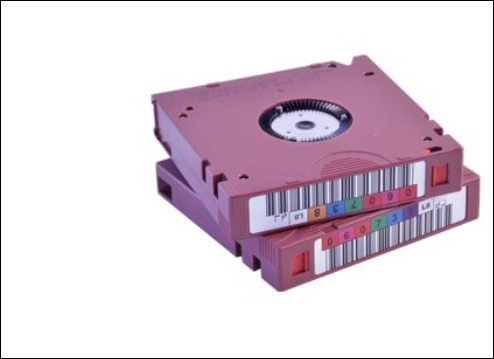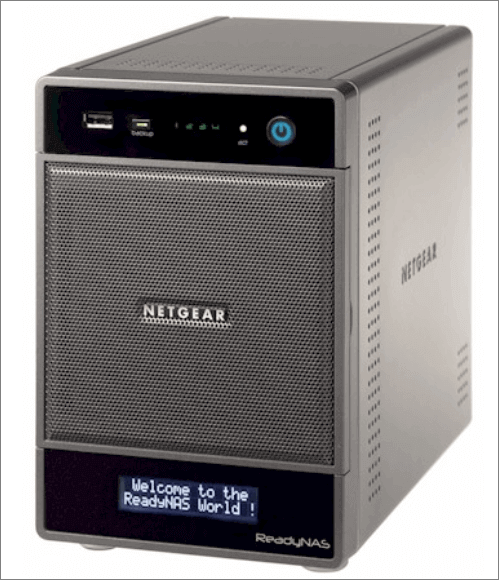Data backup and data protection are more important in modern society. Both tape backup and NAS are good storage devices, and choosing a suitable storage device determines whether you can guarantee the safety of your data. But how to choose? What is the difference between tape backup and NAS? This page can help you have a moment of enlightenment.
Tape Backup VS NAS: Definition
First, we need to figure out what tape drive and NAS are. The next two paragraphs respectively introduce their definitions.
What Is Tape Drive?

The tape drive stores the computer data on magnetic tape. It is especially good for backup and archiving purposes. Like an ordinary tape recorder, a tape drive records data on a loop of flexible celluloid-like material. It is easy to read and erase data on a tape drive.
What Is NAS?

NAS can safely store large volumes of any type of data, and it supports potentially huge volumes of data while maintaining the same convenient data storage as cloud services. It is utility storage where you can store, manage and share all your files, photos, videos, or other documents.
As we can see, NAS and tape drive are good storage devices suitable for backup. But do you know their difference? Do you know their advantages and disadvantages? Here, this page will show you their features clearly.
Tape Backup VS NAS: What Are Their Main Disadvantages and Advantages?
Then, we must know their advantages and disadvantages before making a choice. There is a table to show you their advantages and disadvantages clearly.
| Features | NAS | Tape Backup |
|---|---|---|
| Advantages |
|
|
| Disadvantages |
|
|
From the table, it is easy to see that tape backup and NAS have extremely different features, so they are suitable for different needs.
Tape backup is suitable for:
- Ideal for an offline backup
- Back up large amounts of rarely accessed data that need to be retained
NAS is suitable for:
- Automatic backup
- Multiple devices need to easily access the same set of files
- Transport and share videos among family members
See! Tape backup and NAS both have their specific usages. But do you know why people would rather choose NAS than tape backup now?
Tape Backup VS NAS, Why Choose NAS Storage over Tape?
Although some people or enterprises still occasionally use tape backups, users of NAS are obviously on the rise. Compared to tape backups, the network-attached storage device can offer more flexibility and cost-effectiveness, providing comprehensive and considerate storage and backup solution. NAS allows users to have automatic backups to the NAS to meet their needs. Besides, with it, users can easily send their rarely-used files or other data to the Cloud. Furthermore, it protects and syncs data from devices so users can have a copy. Besides, NAS is disaster-proof at some dangerous moments. Furthermore, NAS devices always have redundancy and allow for a second copy of your data to be made in case hard disks fail.
Besides NAS, many other storage devices also gradually replaced tape backup. Do you know of that?
What Replaced Tape Backups?
The tape backup is gradually outdated since other storage devices have appeared, such as NAS, disk backup, and solid-state drives. Also, people now have more specific demands of backup that tape backups can not meet. For example, users rely more on the automaticity of backup while tape backup is still manual. Furthermore, with Cloud service and NAS appearing, users can easily finish a backup plan without maintaining or cleaning the storage devices. Therefore, other storage devices replaced tapes to some extent. However, do people quit tape backup? Of course not!
Do People Still Use Tape Backup?
Are tape Backup Still Relevant? Sure! Like the other form of technology, tapes have evolved over these years. Even if its role as the main backup medium has largely been taken over by disk and cloud storage, it is still actively used in modern data centers. It is a big challenge to migrate from tape since it is an economical backup destination. Besides, many enterprises still have rarely-used data, which has to be kept for unexpected checks and other needs, and sometimes, they also need to do tape data recovery. Although it is not that automatic, it is still a good storage device when a large amount of data is stored. Therefore, it is tricky to completely take the place of tape backups in a short time.
Conclusion
Tape backup and NAS has their features, advantages, and disadvantages. Tape backup is money-saving, but users need to spend time maintaining and cleaning the tape. On the other hand, NAS is more convenient and makes backup easier. This page compares tape backup with NAS. Hope it can help with your problem.
Was This Page Helpful?
Sherly joined EaseUS in 2022 and she has always loved writing articles and enjoys the fun they bring. She receives professional training here, focusing on product performance and other relative knowledge. She has written over 200 articles to help people overcome computing issues.
Related Articles
-
What Is Pagefile.sys? Is It OK to Delete It?
 Daisy/2024-01-11
Daisy/2024-01-11 -
How to Find Motherboard on Windows 11, 10, 8 and 7
 Daisy/2024-01-11
Daisy/2024-01-11 -
What Is the Mac Terminal? Introduction to the Command Line Interface on macOS
 Daisy/2024-01-11
Daisy/2024-01-11 -
Full Guide of Boot Camp on Mac & How to Use It
 Cici/2024-01-11
Cici/2024-01-11
